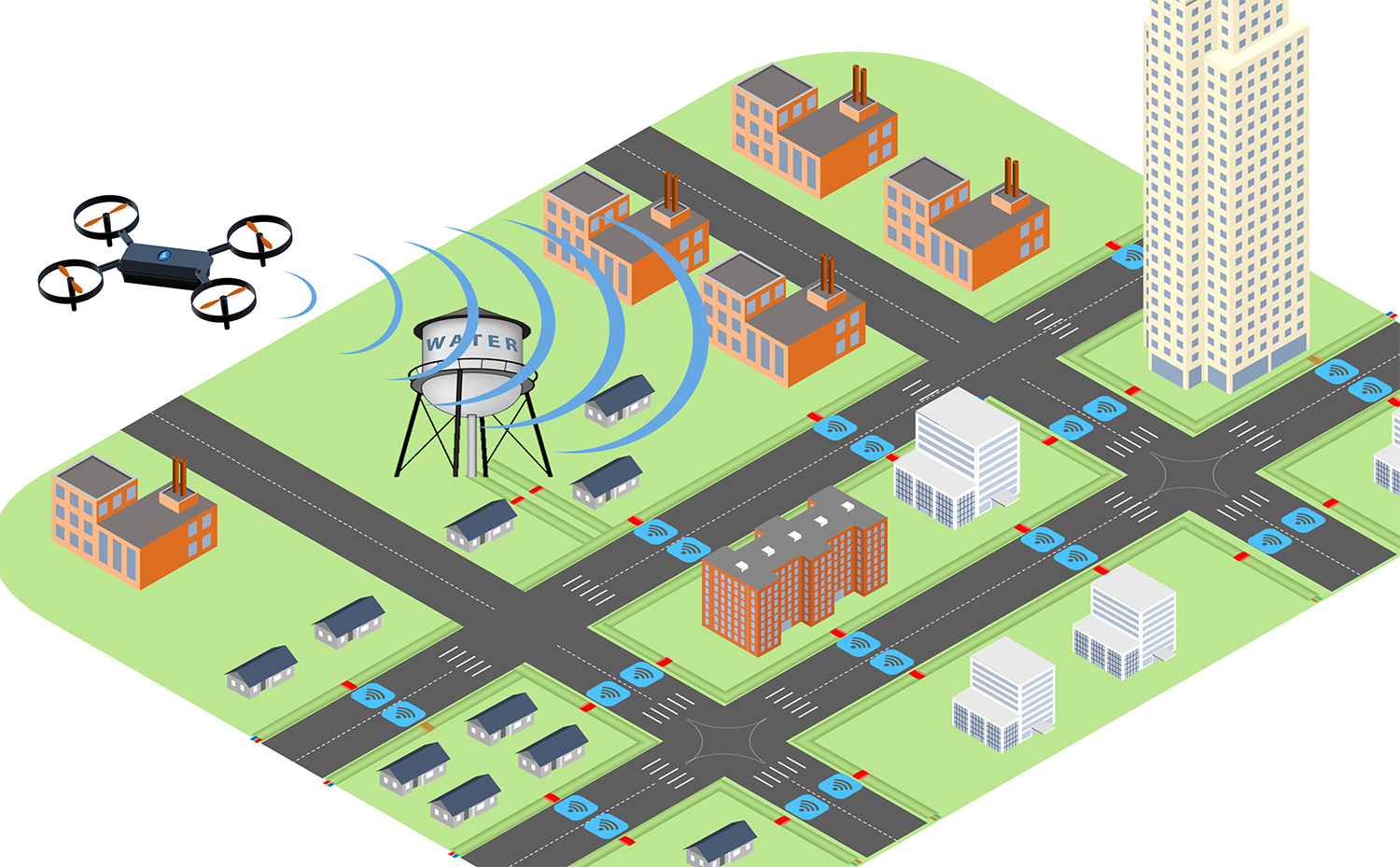Smart sensors to provide real time data for optimized operation of the district heating grid
Researchers from the universities in Aarhus and Aalborg are working closely with leading companies to develop intelligent, battery-less sensors that communicate wirelessly to an autonomous cloud-based monitoring system.

In Denmark, approx. 18-20 per cent of the heat generated by district heating plants is wasted due to heat loss in the distribution network. The same figure applies more or less to all European district heating network systems.
A new research project supported by Innovation Fund Denmark aims to develop an intelligent sensor system that can very precisely monitor the district heating grid and provide new, valuable knowledge about the entire system, thus saving district heating plants enormous sums on monitoring, maintenance and heat loss.
"Technologies have been developed to help detect leaks in district heating systems for decades, but there is still no cheap, simple and autonomous technology which can transmit operational data such as temperature and pressure to the cloud even without an external power supply. This is what we want to develop with this system, in which we link brain-inspired, so-called neuromorphic data processing with energy-harvesting technologies to create an extremely low-energy system, built directly into the district heating pipes," says the project manager, Associate Professor Farshad Moradi from the Department of Electrical and Computer Engineering at Aarhus University.
Drone thermography has been used in several places to detect loss of energy quite accurately. But with thousands of kilometres of pipelines for large urban areas, and with the need to manually pilot the drone and review the material, this is no cheap solution.
The focal point of this new project, which is called PipeSense, is very small sensors placed inside the insulation material around the district heating pipes that automatically harvest energy from their surroundings. Consequently, the sensors do not need a battery, as they continuously measure a wide range of different parameters.
Data processing takes place directly in the sensor, where artificial intelligence learns to recognise important and real time data in the data stream, only communicating the most important information:
"By using brain-inspired data processing, we can drastically reduce the amount of data that the sensor has to process and transmit. We expect these sensors to have a very low power consumption," says Farshad Moradi.
The sensors transmit relevant information to central communication hubs located in a LoRaWan (Long Range Wide Area Network) or to autonomous drones flying around to intercept data in real time.
The PipeSense technology will be used to provide knowledge for combined heat and power plants about the conditions in and around the district heating pipes, for example pressure, flow, corrosion, humidity and temperature, and it will enable the plants to optimise the operation of the pipeline grid for maximum efficiency and reduced heat loss.
"Leaks and heat losses are major challenges in the district heating grid today. The development of intelligent battery-less sensor technology will support Logstor's vision of a smart supply network, where we can optimize operations with real-time sensor input from the network and reduce energy losses considerably. Based on our experience from Denmark, we expect that this technology will spread to our export markets," says Kristian Overgaard, Head of Innovation at Logstor A/S.
PipeSense is being funded by Innovation Fund Denmark with DKK 13.6 million and it has a total budget of almost DKK 18.6 million. The project includes four Danish partners: Logstor A/S, Creative Sight ApS, Aalborg University and Aarhus University. The project will run until 2024 and it is being headed by Farshad Moradi, Aarhus University.
Contact
Associate Professor Farshad Moradi
Mail: moradi@ece.au.dk
Tel.: +45 41893344
